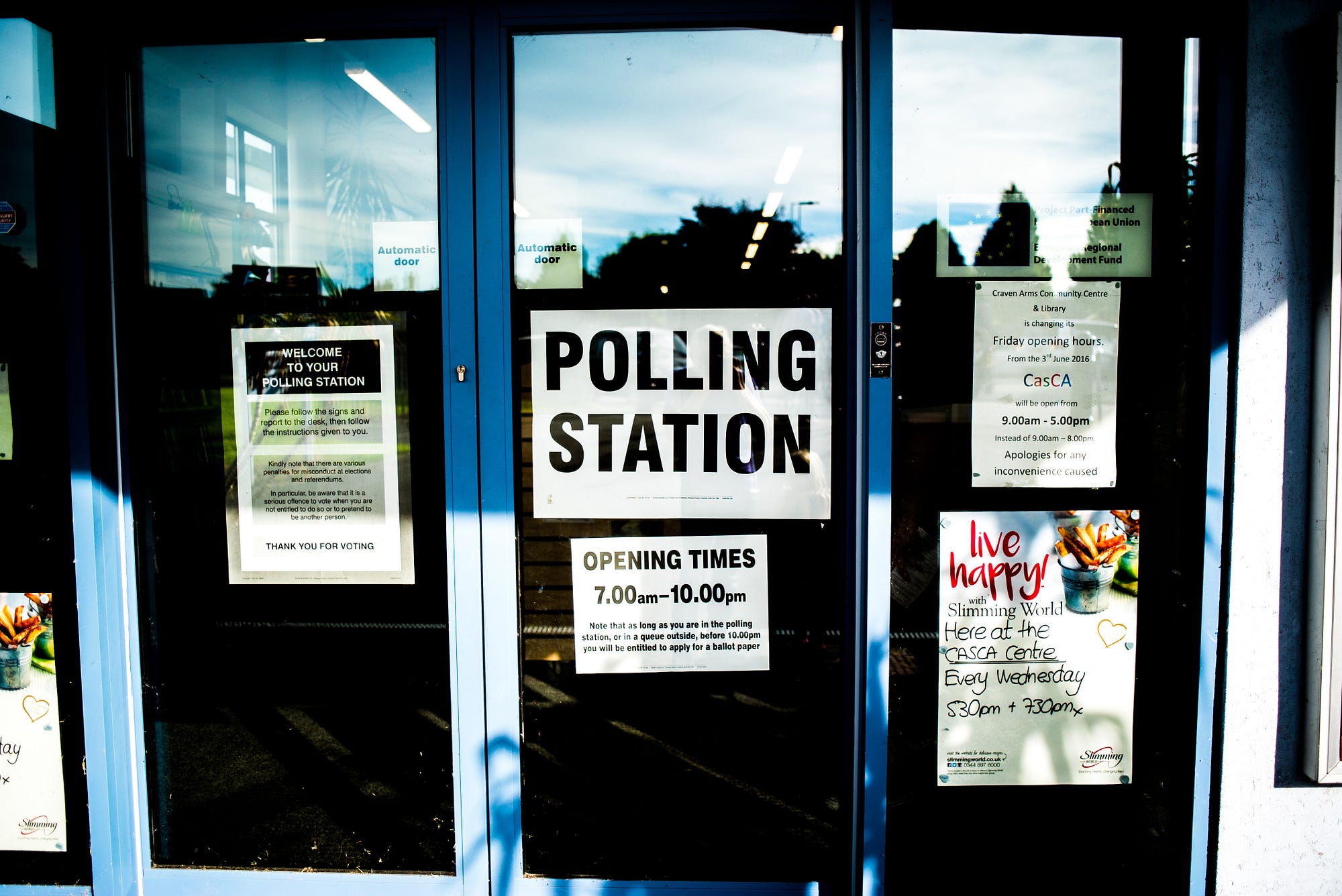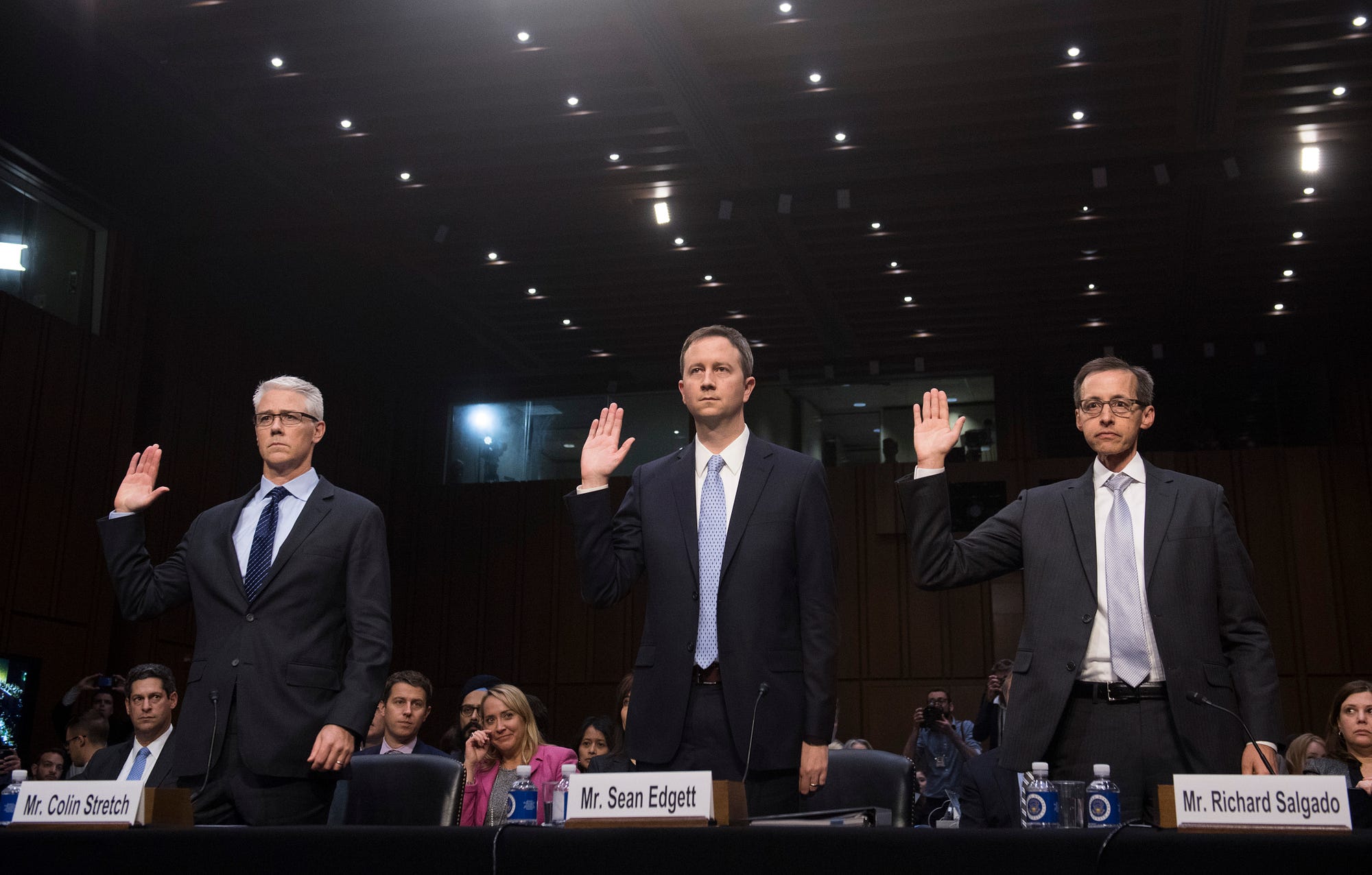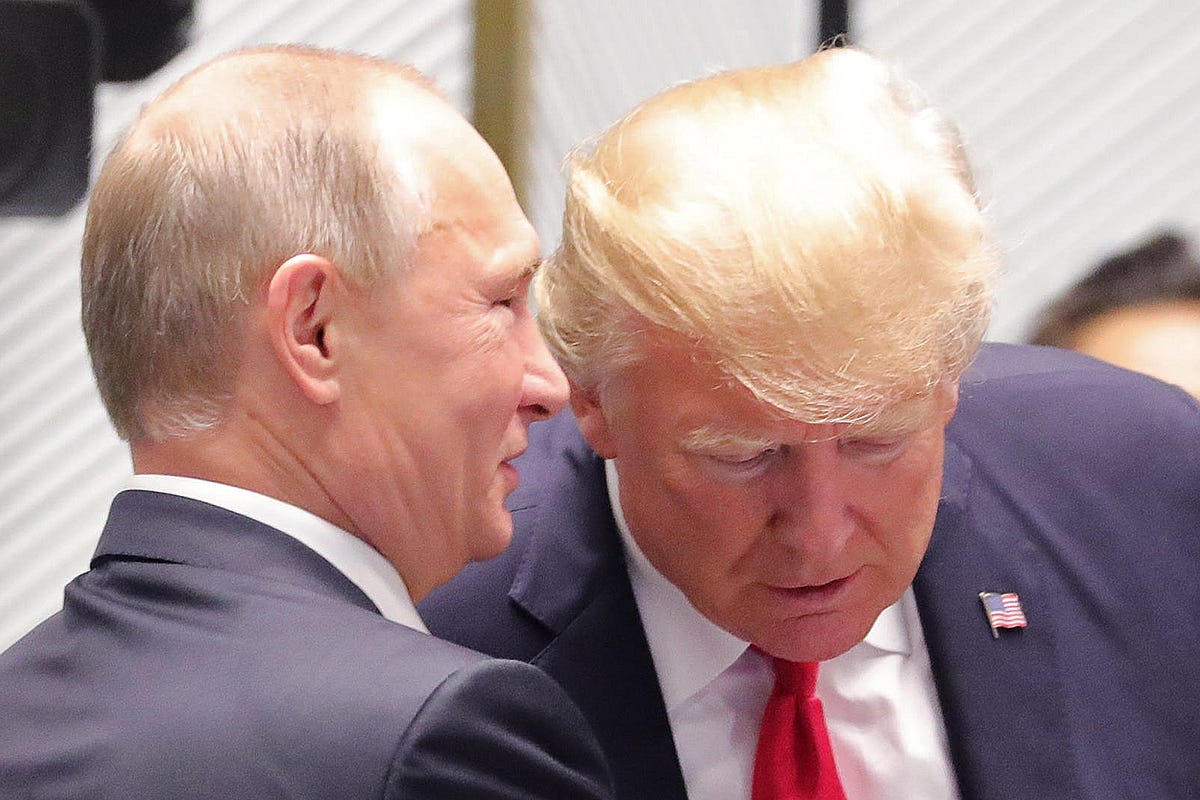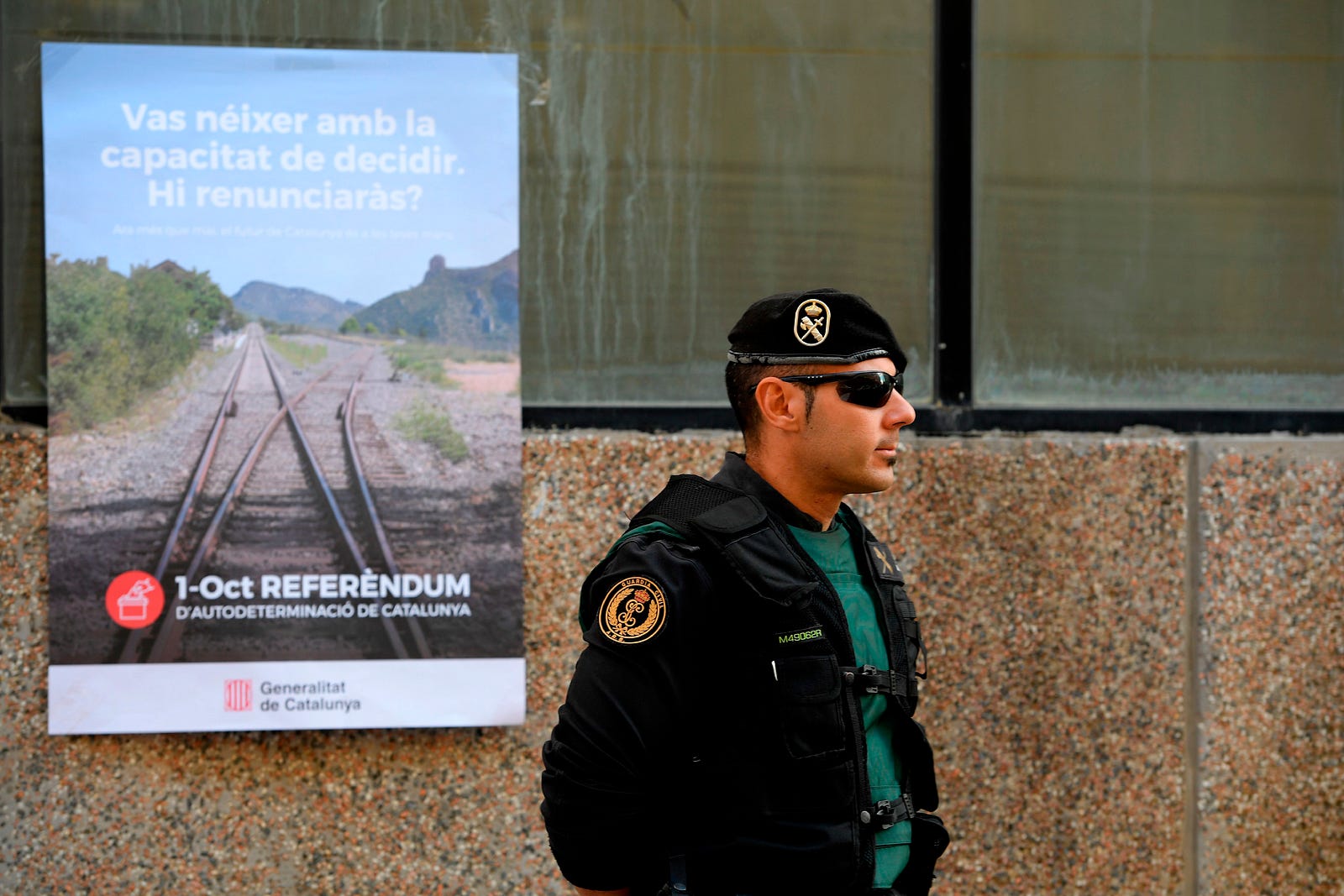Nothing Is Real Anymore – Tobias Stone – Medium
Nothing Is Real Anymore

Europe
It is now clear that Russia, Mercer, and others orchestrated a comprehensive campaign to undermine the democratic process in the UK and United States, and it seems implausible, given the evidence, that both Trump and Brexit were not in some way an outcome of this.
Other European countries have also been battlefields in the Great Cyber War. It has become clear that Russia interfered with the elections in France and Germany and has been influential in the shift of countries like Poland, Hungary, and Turkey away from European liberal democracy back to nationalist authoritarianism. The same techniques are being used again and again, and in many cases are being traced back to the same Russian hackers or fake social media accounts. Polish Defense Minister Antoni Macierewicz goes into more detail about Russian attacks on his country, claiming:
“Every week the Ministry of Defence here experiences a cyber-attack from Russia!”
Attacks on European governments go back some years, with the first cyberattack by the group known as Fancy Bear, actually a unit of a Russian military intelligence agency known as APT28, emerging in 2014, including a cyberattack on the German parliament.
France deflected a hack of Emmanuel Macron’s emails, dumped onto Wikileaks and circulated to the media, as was done with hacked emails from Hillary Clinton and the DNC. A more independent media in France was ordered not to publish what was clearly a trove of some real and some fabricated emails designed to undermine Macron, and therefore support Le Pen.
There is growing evidence that the Catalonian “referendum” was also a focus for Russian information warfare tactics and is now being used as ammunition by Russia to portray the European Union as a failure. El Pais, the French newspaper, explains the purpose of this, quoting Alexei Venediktov, director of the radio station Echo of Moscow:
“Putin understands that by supporting far-right movements, nationalists, and separatists, as in Catalonia for example, it weakens and destroys the unity of Europe, which is what maintains the sanctions against Russia.”
Referring to the task force set up by the EU to combat Russian information warfare, El Pais recently wrote:
According to the East Stratcom Task Force, the Kremlin invests up to a billion euros a year on its public media outlets. These include two that operate in Spanish: RT, with a presence in 100 countries, and Sputnik, which publishes stories in 33 languages. On top of that, the Russian government amplifies its fake news and hoaxes through troll farms: companies that use phony, automated social media profiles to ensure maximum impact.
The Spanish government formally announced that both Russia and Venezuela have been carrying out attacks on Spain to worsen the Catalan crisis, identifying Russian social media accounts that have been reposting fake or inflammatory stories from Russia Today, and Spain’s prime minister suggests that some images of police violence were fake. Russian extremist and fake media was joined by American sources, like Breitbart, to propagate doctored images and fake stories, all of which presented the situation as far worse than it was, aiming to fan the flames of division.
Again, as with Brexit, the suggestion is not that Russia caused the crisis, but that it has sought to amplify and worsen it, and through disseminating fake news, to muddy the water, creating greater conflict and anger and less clarity and certainty.

While the countries of Europe are being very slow to respond, the investigations in the United States are now shedding light on the role of Russia, Mercer, and other actors in this battle in their attempts to destabilize the EU. At the U.S. Senate hearings, to which the major social media companies were summoned, Senator Angus King stated:
“We know the Russians were involved in the French election. We know that they were involved in the German elections. We are now learning they were involved in the separation of Spain.”
By now it should be no surprise—indeed, it should be assumed—that Catalonia’s attempted break from Spain was fueled with fake news and propaganda. This is the new normal, and we should default to concluding that any disruption to our status quo is part of the same Great Cyber War.

A Big Deal in Silicon Valley
The platforms on which this information war is being fought were built, inadvertently, in Silicon Valley. Facebook, Twitter, and Google, in particular, and the companies they have bought, like Snapchat and Instagram, have connected the world and now dominate our attention. These new behemoth corporations have been slow to confront this new reality. They sent lawyers, rather than their CEOs, to Washington to defend themselves in front of lawmakers, suggesting an unwillingness to acknowledge that their platforms lie at the heart of this problem. Indeed, in exasperation, at the congressional hearing where America’s social media companies were questioned, Senator Dianne Feinstein told Facebook, Twitter, and Google representatives:
“You don’t get it! This is a very big deal. What we’re talking about is cataclysmic. It is cyber warfare.”
Silicon Valley is still too concerned with protecting its commercial model to openly confront the extent to which it is being used to undermine the world order that allowed it to develop those businesses in the first place. The extent of the problem is beginning to come to light, but only through the diligent work of investigative journalists and politicians. Silicon Valley still seems to be suffering from willful blindness when it comes to confronting this situation.

While these companies are now being forced to confront the Russian misuse of social media, they are slow to react to what is in effect the third front in the Great Cyber War that opened in Macedonia, when kids from the town of Veles cashed in on the chaos by churning out fake news targeting Trump voters to earn click-through revenues. The scale of their operations is astonishing, but since it is not overtly political or malicious, the impact is being underestimated. Yet, as I argued in a previous piece on this topic, they are creating a political dialogue and discourse on the American right that is built entirely on made-up information designed to generate click-through revenues, which in turn is affecting voting patterns.
Facebook now reluctantly admits that around 270 million accounts are fake. Consider that Facebook also admits that 126 million people may have seen content from the 3,300 adverts purchased by the FSB for just $100,000, one must then wonder how many more people saw information from those of the 270 million fake accounts that are also nefarious in some way. Indeed, how much of Facebook’s core business is actually (perhaps inadvertently) information warfare and propaganda? Twitter also admits that the 36,746 Russian-linked bots that tweeted a total of 1.4 million times in the two months before the election were viewed 288 million times.
The population of the United States is 323 million people.
Senator Feinstein is right.

Nothing Is Real Anymore
The extent of interference in Western democracy by Russia, Mercer, and other anti-democratic states is now clear and irrefutable. And yet, despite all this hard evidence, Donald Trump continues to deny all of this. Trump recently told the world, via his Twitter account, that Putin denied having any involvement in the U.S. elections:
“He said he didn’t meddle…I asked him again. You can only ask so many times.…He said he absolutely did not meddle in our election. He did not do what they are saying he did.”

By echoing and amplifying a blatant lie by Putin, Trump is at least complicit in aiding Russia’s work to undermine the West, acting as a “useful idiot.” This all comes back to the effect of such mixed messaging. When the FBI, Senate, and Congress claim that Russia hacked the U.S. election, and the president claims it did not, and then goes on to dismiss them as “political hacks,” the average American will find it hard to believe either side, leading straight back to Kasparov’s quote about “annihilating truth.”
We have to start asking ourselves what around us is real? It is very hard once you stop trusting anything, because then everything looks like a conspiracy. That is the aim. I now doubt my own mind.
Writing about why Americans are falling for Russian propaganda, Patryk Babiracki, associate professor of history at the University of Texas at Arlington, says:
In the new “hybrid warfare” the Kremlin champions, anything goes: War need not be declared; intervention should be deniable; all government and private resources can be mobilized to advance Russia’s goals.
The aim is to confuse us, to sow discontent and amplify internal conflict. Look at how successful it has been: Britain is divided over Brexit; the United States is more divided than ever before and is baffled by the FBI saying Russia interfered with the election, while the president claims nothing happened. Europe is divided, with Poland and Hungary turning away from the EU and democratic liberalism, the UK and EU arguing over Brexit, and a refugee crisis weakening Europe’s ideals and political norms.
If we assume that Russia and Mercer separately, and perhaps together, conspired to influence the outcome of Brexit and the Trump election and generally divide and fragment Western society, then we have to assume this is happening everywhere, all the time.
There is no reason to assume it was restricted to Brexit and Trump. Indeed, we have seen clear evidence of the same tactics in the French and German elections and across Eastern Europe. In which case, we need to ask ourselves what else is part of the same information and propaganda war. Instinct suggested Catalonia’s troubles were, and evidence has now shown that to be the case.

What to look for is not whether the underlying story is real, but whether the timing, and the extent to which it is amplified, is being artificially influenced. This involves complicated mental gymnastics. In particular, we need to be wary of contentious issues that evoke a strong reaction, as these are the targets of information warfare. We have to disentangle our response to the core issue and instead ask when and how the issue came to light. By manipulating social media, and through ownership of some of the mainstream media, it is possible for Mercer, Putin, or other actors to bring a story out at a particular moment or to amplify the impact of a story. The story itself may be true, or partly true, but the timing of its release, and the damage it causes to society more widely, or as a smoke screen to obscure far more sinister news, may be information warfare.
For example, we should ask difficult questions like these:
1. Catalonia: Did the referendum happen now because it was always going to happen now, or was the timing in some way manipulated by outside forces, such as an amplifying effect through social media and fake news, or even third-party funding of the political campaign behind the separatist movement? (There is no evidence of this, but until recently that was also the case with Brexit.)
2. Hollywood sex scandals: Is it a coincidence that so many large Democratic donors have been outed and destroyed? Is it coincidental that the exposé of so many sexual assaults is restricted to Hollywood, and previously Silicon Valley? If you agree that the film industry and tech sector are primarily bastions of Democrat supporters, why were the film industry and Silicon Valley the only sectors to have seen this purge of abusers? Maybe it’s a coincidence, but when viewed alongside everything else, maybe it’s not. What about the oil industry, tobacco, arms? Is it likely they are not also full of rapists, misogynists, and bullies? Why are they not also seeing heads roll? Why Hollywood, why now? Is this a smoke screen to distract us from the U.S. investigations into Trump’s contacts with Russia, or allegations into sexual assaults by Trump himself? It is important to understand that while the allegations being made by women and men should be taken seriously, the way some become amplified and others buried can be suspicious. Again, no evidence yet suggests it, but it fits a previous pattern where no evidence at the time gradually became clear evidence later.
3. In Britain, the sex scandals engulfing the UK Parliament: Why has this happened just now, when the news would otherwise be dominated by Robert Mueller’s investigation into Trump and the ties it is exposing with Brexit, Russia, and Mercer? Why is there a political scandal in the UK just when the government needs to focus on negotiating Brexit? The scandals were always there, and the need to address them is genuine and crucial, but we should be careful to ask why a wave of stories breaks across social media at a given moment, and what is driving that. It is very hard to disentangle the genuine problem at the heart of the scandal from the possibility that it has been manipulated for political or financial gain.
This already sounds paranoid and like a conspiracy theory, but if we take on board the scale and impact of the Great Cyber War, now in its tenth year, it would be negligent not to ask such questions, however hard they are to contemplate, however many may end up leading to nothing, and however silly some of them sound.
A scandal, in this modern age, can come out of a few carefully placed tweets, amplified by bots, picked up by questionable “news” outlets like Russia Today and Breitbart, and then reposted again by bots and paid trolls. If you combine that with the ability to target such messaging through the psych-ops machinery of Cambridge Analytica, it is very plausible that these big scandals, which grow, swell, and crash like waves across an ocean, are in some cases being fueled and stoked by forces wanting to undermine the West.
We can now see that the DNC Wikileaks dump was timed just as the tape of Trump talking about “grabbing them by the pussy” went live on the news and consequently drowned out that scandal. People are left wondering why of two rich sexual predators, both of whom were exposed in the media, one (Weinstein) has seen his career ruined, while the other has become president of the United States. We cannot just take these things for granted anymore when we realize that massive, complex, and clever machinery is at play in the background.
To understand this, the mental gymnastics involve separating your emotional response to the scandal and the real underlying events from examining just the timing and mechanism of that scandal. This involves putting aside any anger, emotions, or moral response to the actual scandal. You need to explore who else is going down and how much social media played a part in the scandal. What are the patterns, and do they match previous patterns? You also have to look at what other news this is obscuring, as well as where there are not scandals — why Hollywood? Why not oil?
Anything that divides society—in particular, the democratic machinery of society—or that creates a massive smoke screen of outrage, should be viewed with suspicion. We need to separate the problems, which are genuine and of concern, from how they may have been twisted, manipulated, and amplified for purposes other than addressing them appropriately. We have criminal and legal systems in place to investigate crimes and find people guilty that are generally immune to corruption and outside pressure. So we should pause to question whether our societies should be accusing, trying, and punishing people just over social media, a process that has none of the protections in place that our criminal justice systems have developed over centuries.
We always have to ask where we may have been manipulated by propaganda and psych-ops. It helps to look back at the last great war to understand the power of propaganda. During World War II, information warfare and propaganda were functions of the military. They were considered weapons and acts of war. They were understood for what they were, and as such were treated accordingly. For example, Lord Haw-Haw, the Irish-American who broadcast from Germany in English to undermine morale and sow confusion among Allied troops, was arrested by the British and executed for treason. A mere radio broadcast was deemed sufficiently dangerous to warrant the death penalty.
Yet here we are, not in a state of war, and our systems of government and law enforcement are baffled by what in wartime would be understood very clearly as an act of war, and at least from one side is being conducted as such. Currently, the Electoral Commission in the UK is trying to unravel who actually funded the Leave.EU pro-Brexit campaign. Money paid to the DUP and other organizations is proving hard to trace back to the source, meaning that the Brexit referendum was in some way funded by anonymous foreign sources.
But the laws being examined are electoral law, and the consequences of breaking these laws would be relatively inconsequential. If we were at war, those involved in foreign propaganda would be arrested as fifth columnists, foreign agents, and criminals. Instead, they are being investigated for tax evasion and breach of electoral laws. We simply haven’t understood the scale of the situation yet. We also appear to be stuck with the outcomes of electoral events that may, with hindsight, turn out to have been heavily corrupted by foreign agencies. So even if our governments do find people guilty and fine or otherwise punish them, the result is a victory for the forces that wanted to undermine our countries.

